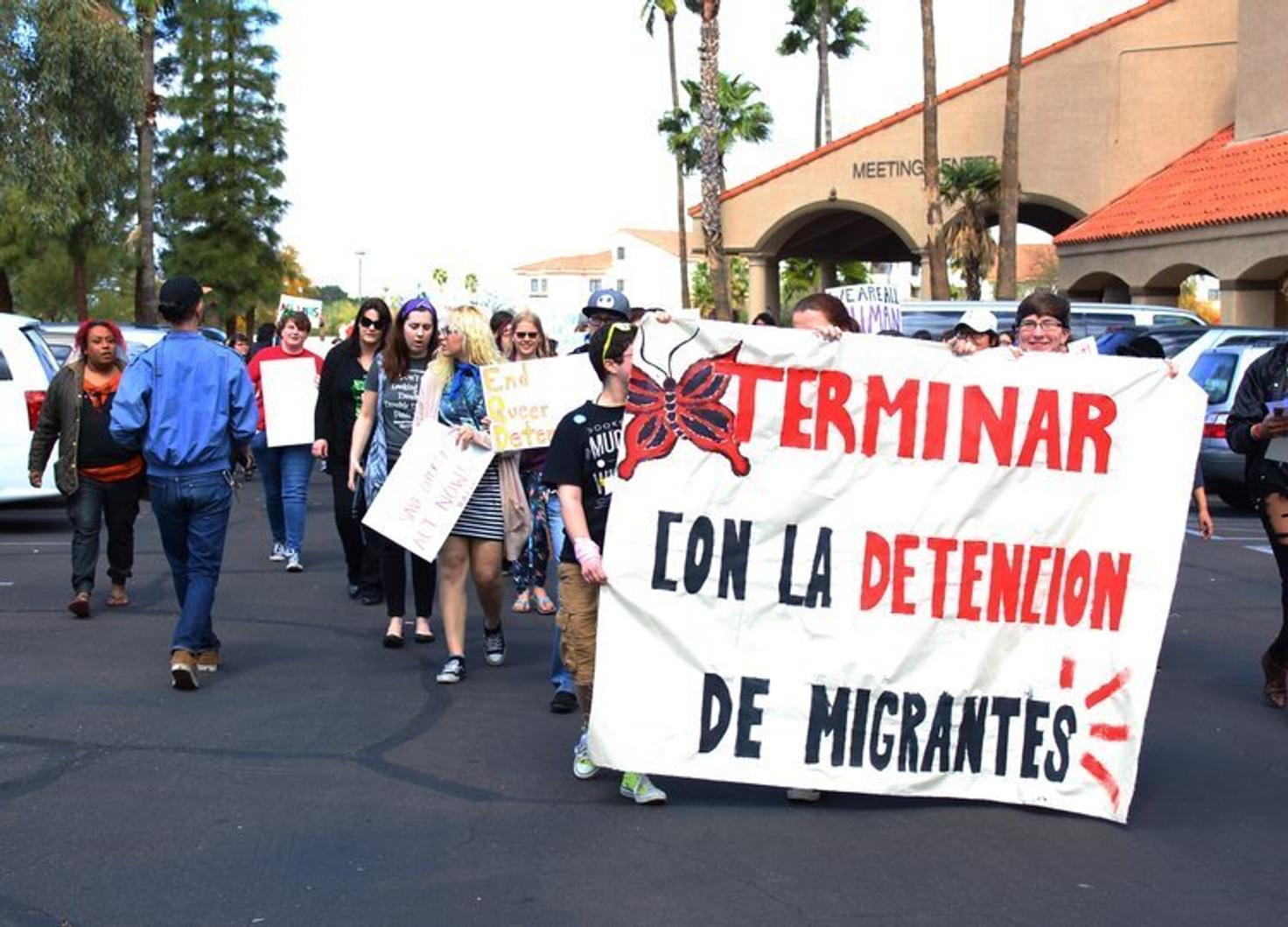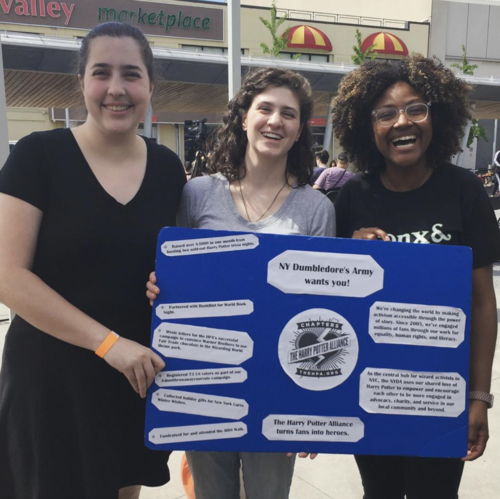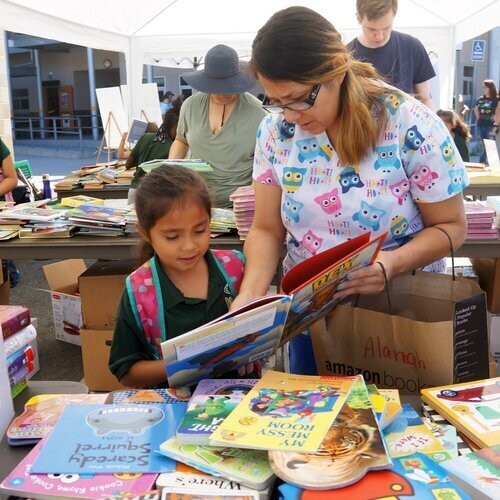
Words by Abi Scaife
“Fandom Forward turns fans into heroes. And by that, we mean that we harness the energy of fans towards social good.”
Fandom Forward, once the Harry Potter Alliance, are pioneers of fan activism.
Working to mobilise fans for social good, Fandom Forward has had a myriad of projects for different causes, ranging from supporting immigration and the LGBTQIA+ community, to voting and combating the climate crisis.
“Our community building has been very organic, and we always try and operate from a place of authenticity,” says Sara Mortensen, the campaigns director at Fandom Forward.
“We were doing this organising and able to build this community because we are fans ourselves. And so we know where the fans are online because we are also part of those communities.”
One of Fandom Forward’s most successful, and iconic, campaigns includes ‘Not in Harry’s Name’. Then the Harry Potter Alliance, Fandom Forward campaigned for Warner Bros. Studio to use exclusively Fair Trade and Universal Trade Zone (UTZ) certified chocolate in the Harry Potter films.
This also applied to the chocolate used to make products, like the iconic chocolate frog, at the Wizarding World of Harry Potter.
After four years of working for change, the campaign was successful, with Warner Bros. agreeing to the change in 2014, and things have only gone up from there.
With chapters in multiple different countries, what was once just a group of people sharing a passion for Harry Potter has become a global phenomenon, causing ripples of positive change.
“That's really what Fandom Forward is all about; harnessing the energy of fans to make those connections between the stories that they love, and what's happening in the real world,” says Sara. “And then take it one step further and do something about it - do some type of activism, organising social good, to make the world a little bit better.”
Fandom Forward runs its campaigns off a series of core values, including joyful activism, the power of community, and that heroes aren’t born; they are made.

These values follow Fandom Forward through everything that they do, from campaigns to training - the majority of which is run by volunteers.
“We have at any one time, about 30 to 50 volunteers; our organisation has always been heavily volunteer-led,” explains Sara. “It's a very collaborative process.”
Not only does Fandom Forward actively work for positive change through its campaigns, of which they have at least one ongoing at all times, but they also train others for the same work.
“The main way that we train people is through our annual leadership conference, which is called the Granger Leadership Academy,” explains Sara.
“We offer workshops on both leadership training and activism … and then we always end the conference with a big Action Day. As a whole community, we either protest or send letters or make phone calls about a particular issue in collaboration with a particular organisation.”
Though they have been prevented from running the conference in person by COVID, before 2020 they would train around 200 brand new activists one weekend per year.

Recently, they have been running a campaign called ‘Book Defenders’, twofold a campaign and a training opportunity that is an updated version of their old campaign ‘Accio Books’.
All about learning how to fight book bans in your community, Book Defenders led to 1,200 books being donated by fans in 3 different countries, as well as 500 fan activists being trained through Fandom Forward.
Throughout the Accio Books and Book Defenders campaigns, more than 400,000 books have been donated to help build and stock libraries around the world.
To Sara, much of their success is down to the enthusiasm that fandom brings to the table. While people who are passionate about fandom can sometimes be seen as immature, or depicted that way in mainstream media, to Fandom Forward it is their biggest strength.
“I think that immaturity is seen [in us] because we are approaching activism from this joyful, fun enthuistic place. But that doesn't mean that it's not serious,” says Sara.
“We've had some really big wins. And I think, approaching it from that that place of joy has made the work much more sustainable and accessible to people. It's much it's much easier to get involved when you're seeing that people are having fun while they are doing activism.”
This article aligns with the UN SDG Partnerships for the Goals.